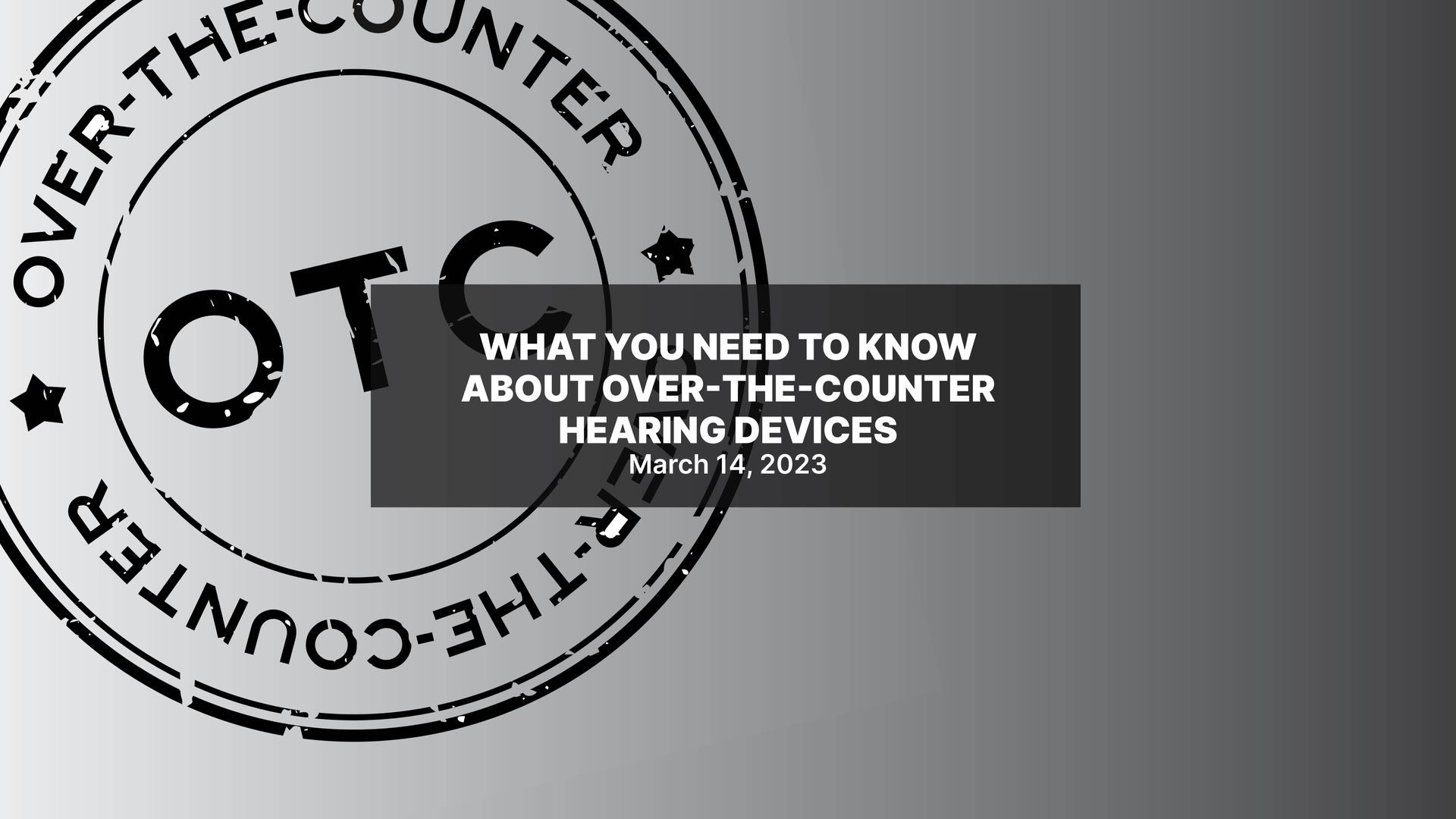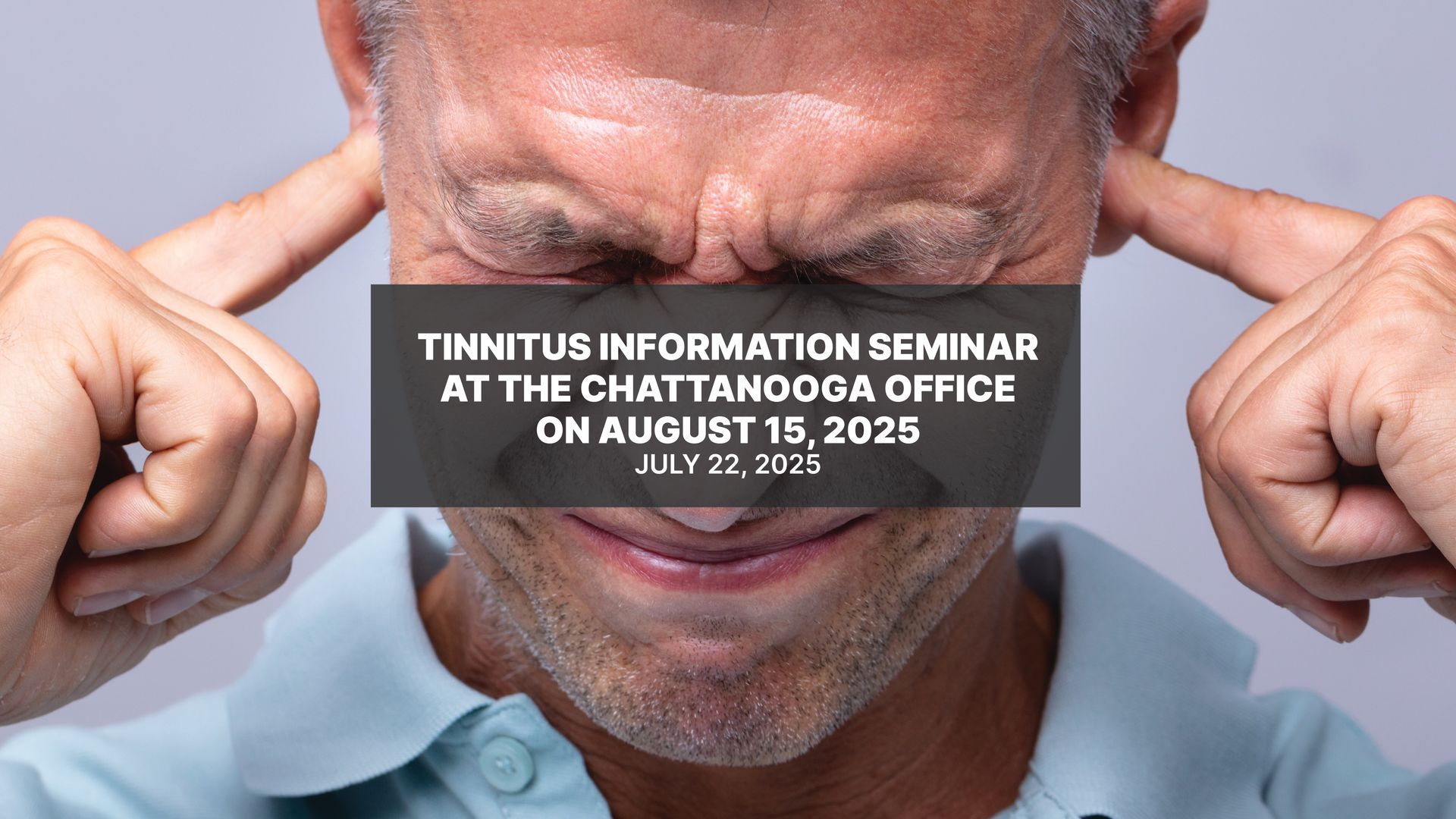
For several years, modifications on how hearing devices are classified have been in the works. Keeping abreast of updates can be challenging since misinformation abounds on the topic. Below you will find background information as well as the most recent updates since the FDA guidelines were released in August 2022.
Two categories of hearing devices historically
Historically, two types of hearing devices were categorized—hearing aids and personal sound amplification products, or PSAPS.
Hearing aids
For years,
programmable hearing aids have been classified by the U.S. Food and Drug Administration (FDA) as Class I or Class II medical devices. The difference between Class I and Class II hearing aids is that Class II hearing aids are those that integrate wireless technology, including ear-to-ear communication and Bluetooth. In order to be fit with one of these Class I or Class II hearing aids, a patient would see a licensed hearing care professional, namely an audiologist or a hearing aid dispenser. The hearing care professional conducts a diagnostic hearing test to determine the level of hearing loss, takes measurements and/or custom earmolds, and fits the person with hearing aids based on a thorough review of the person’s unique hearing loss, common listening environments, and other needs. During the fitting process, live measurements are made while the hearing aids are in the patient’s ear with the hearing care professional using the hearing manufacturer’s computer software to minimize feedback and adjust for optimal sound quality. Additionally, real-ear measurements are used to verify targets are met to insure the person is receiving proper amplification.
Personal Sound Amplification Products, or PSAPS
Available for many years and often confused with hearing aids are PSAPs, or personal sound amplification products, that are available in retail stores and through purchase online, by mail order or over the phone. PSAPs are not hearing aids. Instead, they amplify all sounds without discernment and, therefore, are not intended for those with hearing loss. Devices for those with hearing loss need to be tailored and programmed to an individual’s specific needs. Because of the low cost of PSAPs (anywhere from $10 to $500), many have sought to treat their hearing loss with these devices, however. Historically, the FDA has differentiated between hearing aids and PSAPs as a way of protecting consumers from the potential damage that PSAPs can do to a person’s hearing since the devices can be purchased without a prescription and without a hearing evaluation or ongoing care from a trained hearing care professional.
Changes in 2017 that initiated the redefinition of hearing devices
In 2017, two pieces of Congressional legislation were passed that significantly impact hearing devices—the FDA Reauthorization Act and the Over-the-Counter Hearing Aid Act
FDA Reauthorization Act of 2017
The FDA Reauthorization Act was signed into law in 2017. This sweeping act included revisions and extensions for things like user-fee programs for drugs, generic drugs, and other similar biological products. It also included revisions for medical devices, thus opening the door for a third category of hearing devices—an over-the-counter category. The Act outlines that the new OTC class of hearing products are for people with “self-perceived mild-to-moderate hearing loss.” OTC devices will be available without a prescription or the involvement of a licensed professional for fitting and programming the hearing aids.
Over-the-Counter (OTC) Hearing Aid Act of 2017
The OTC Hearing Aid Act of 2017 was also signed into law in 2017 and is a rider on the FDA Reauthorization Act of 2017. It created a class of hearing aids regulated by the FDA that is available directly to consumers without involvement from a licensed professional like an audiologist or otolaryngologist.
FDA rules for this new class of hearing aid were expected to be released by the end of 2020, but a delay was announced noting the COVID-19 pandemic as the overarching factor for delay. However, further delay notices were forthcoming in March and April of 2021, pushing out the date when OTC regulations would be released by the FDA to the end of 2022.
July 9, 2021 Executive Order
On July 9, 2021, President Joe Biden issued an executive order that included many health care related directives. The order included a directive to the Department of Health and Human Services, which oversees the FDA, to consider issuing the OTC hearing aid rules within 120 days of the order, or November 6, 2021.
August 16, 2022 FDA Releases OTC Regulations
On August 16, the FDA released a 200+ page document outlining the regulations for entities bringing products in this new class of hearing aid to the market. It outlines requirements as to the way labeling and packaging on these devices are presented to the public. It makes recommendations that OTC devices are for those with self-perceived mild to moderate hearing loss rather than profound hearing loss. The final rule also includes specifications as to the performance and device design of OTC hearing aids.
Things to Consider With OTC Hearing Aids
Audiologist resoundingly resist OTC hearing aids. Here's why.
Recognizable brands as well as obscure companies will jump in the market and then out again based solely on profit margin rather than customer satisfaction. Examples abound of the mercurial nature of companies that jump into (and often out of) the direct-to-consumer hearing aid realm, and the overarching reason tends to be lack of profit margin. One company that is well known for its home stereo systems and speakers jumped into the market with an OTC hearing aid stamped with their logo and then stepped out of the market just 10 months later, and this was before the FDA guidelines were even released. They then aligned themselves with a company that has had a direct-to-consumer hearing product that has been available for years, stamped it with the new label that the FDA classification now allows, and presents it to the public as if it is something brand new.
It remains to be seen what other devices will trickle into the OTC realm ultimately. No doubt, it will include a wide range of products that may be difficult for consumers to gauge the usefulness and safety of, despite the FDA's aim to monitor new devices. Using the term hearing aid to describe what will likely be distributed in the OTC market may be misleading, at best, and dangerous at worst, to the public welfare. How so?
Hearing loss is a health issue not a retail experience
Hearing loss and other disorders of the ear are health concerns, and should, thus, be diagnosed and treated by an audiologist, the university-trained health care provider with education, training and certification in conditions involving the ear and hearing. If a person has a heart condition, he seeks out a cardiologist. If a person has diabetes, she visits an endocrinologist. A person with hearing loss and other hearing disorders, like tinnitus and hyperacusis, should be treated by an audiologist or otolaryngologist, the health care providers most qualified to diagnose and treat hearing loss.
Self-fitting and self-programming a recipe for failure
OTC hearing aids are designed to be self-fitting and self-programming, and FDA regulations specify they are for those with perceived mild to moderate hearing loss. Predictions are that many companies will enter the market with devices where programming is based on an at-home hearing test or no hearing test at all. Questioning on these companies' website even asks potential customers to rate their own level of hearing loss. These scenarios can produce highly varied and potentially inaccurate hearing loss measures and, thus, can lead to ill-fit and ill-programmed hearing devices, which could translate into low customer satisfaction and the danger of a person giving up on hearing aids completely because they feel like they "don't work." This robs a person of the vast benefits they realize when they have hearing loss that is properly diagnosed and hearing aids that are properly fit and programmed. They also miss out on the ongoing support and care an audiologist provides.
Diagnoses of more serious health issues may be missed
Audiologists are often a patient’s first line of defense in detecting disease process, acoustic tumor, cerumen impaction, eardrum issues, balance disorders, etc. Hearing loss can result from a myriad of factors. Bypassing qualified hearing professionals for an OTC option may mean that a serious condition goes undetected and untreated.
Hearing loss on the rise worldwide
Hearing loss is on the rise worldwide, further punctuating the necessity for qualified professionals to treat this growing public health concern. Interestingly, political entities use the increase in hearing loss as an argument in favor of OTC hearing aids, reasoning that OTC will offer people greater accessibility to hearing devices. Again, an inaccurately fit and programmed hearing aid, however “accessible,” does not lead to better outcomes, but rather to frustration and attrition.
Measuring the cost of OTC hearing devices
Political entities site cost as an overarching factor for the need for OTC hearing aids; yet, closer examination reveals that price gouging on hearing aids has much more to do with the hodgepodge of legal dispensing entities that have been allowed by the government to enter the hearing aid arena. At Johnson Audiology, we implore people to educate themselves on which entities that can dispense hearing aids, albeit legally, are the actual culprits in price gouging. Audiologists earn a doctoral degree from an accredited university, they devote years to their education while in school and beyond, and are bound by strict ethics in the way they treat patients and dispense hearing aids. Other types of dispensing entities, however, like big box store hearing aid counters and franchise hearing aid dispensers do not necessarily operate under that same ethical code. One could argue that OTC, a retail-based dispensing entity, will likely fall into the same category—more interested in selling hearing devices than helping people be successful on a lifelong journey to healthier hearing. And while the cost may appear cheaper up front for OTC hearing aids, spending less money on a hearing device that provides limited benefit is actually less cost effective in the long run. Reputable audiologists, on the other hand, are committed to offering information and access to a wide range of support options for patients who cannot afford hearing aids. Many audiology practices commit time and human resources in working with patients’ insurance companies and third-party hearing aid plans, despite low reimbursement rates for many services. They work with Veterans by way of the VA, which offers hearing aid benefits, and they help individuals with special needs acquire hearing devices by way of state Vocational Rehabilitation programs. They put patients in touch with non-profit groups, like Easter Seals’ and Lions Club International’s hearing programs, that provide help for hearing health care, all in an effort to get people hearing again. In 2019, Johnson Audiology launched its own non-profit organization to help those in need get hearing aids, the Johnson Audiology Hearing Foundation. Learn more at
www.johnsonaudiology.com/foundation.
As additional information continues to be available about OTC hearing devices, Johnson Audiology will provide further updates.




